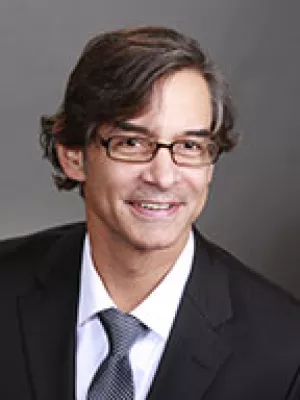Biography
Gregory P. Victorino, M.D. is Professor and Chief of the UCSF East Bay Surgery Program. He is also Chair of the Department of Surgery for Alameda Health System.
Victorino, a highly regarded trauma surgeon, and professor of surgery. Formerly, while the Director of Trauma Services at Highland Hospital, his leadership was crucial to the designation of Highland Hospital, the flagship of Alameda Health System, as a Level 1 Trauma Center serving the East Bay.
Victorino has deep roots in the community with a strong record of clinical outreach. In 2016, he was named Outstanding Physician of the Year by the Alameda Health System. He is also a dedicated teacher and mentor to UCSF-East Bay general surgery residents, and a respected thought leader. His body of professional work includes more than 80 peer-reviewed publications.
Victorino completed his undergraduate degree at UC Berkeley in 1986 and earned his MD at the University of Pittsburgh. He returned to the Bay Area in 1991, completing a general surgery residency at UC Davis-East Bay in 1998, followed by a trauma-critical care fellowship at UC Davis. Soon thereafter, he joined the UCSF Department of Surgery as a faculty member.
Videos
Education
| Institution | Degree | Dept or School | End Date |
|---|---|---|---|
| University of California | Diversity, Equity, and Inclusion Champion Training | 2018 |
Board Certifications
- American Board of Surgery, Surgery
- American Board of Surgery, Surgical Critical Care
Clinical Expertise
Ischemia-reperfusion
Microvascular permeability and physiology
Sepsis
Shock
Trauma
In the News
Grants and Funding
- Post-Injury Dysregulation of Lipid Metabolism | NIH | 2007-08-15 - 2013-07-31 | Role: Principal Investigator
Research Interests
- Microvascular permeability and physiology
- Ischemia-reperfusion
- Sepsis
- Shock
- Trauma
Publications
- The number of gunshot wounds does not predict injury severity and mortality.| | PubMed
- The necessity to assess anticoagulation status in elderly injured patients.| | PubMed
- Ischemia-reperfusion injury in rats affects hydraulic conductivity in two phases that are temporally and mechanistically separate.| | PubMed
- Interhospital transfer occurs more slowly for elderly acute trauma patients.| | PubMed
- Angiotensin II type 2 receptor provides an endogenous brake during inflammation-induced microvascular fluid leak.| | PubMed
- Benefits of a hospital-based peer intervention program for violently injured youth.| | PubMed
- Endothelin-1 reduces mesenteric microvascular hydraulic permeability via cyclic AMP and protein kinase A signal transduction.| | PubMed
- Angiotensin II type 2 receptor decreases ischemia reperfusion induced fluid leak.| | PubMed
- Angiotensin II effect on hydraulic permeability: interaction with endothelin-1, nitric oxide, and platelet activating factor.| | PubMed
- Admission serum lactate levels do not predict mortality in the acutely injured patient.| | PubMed

